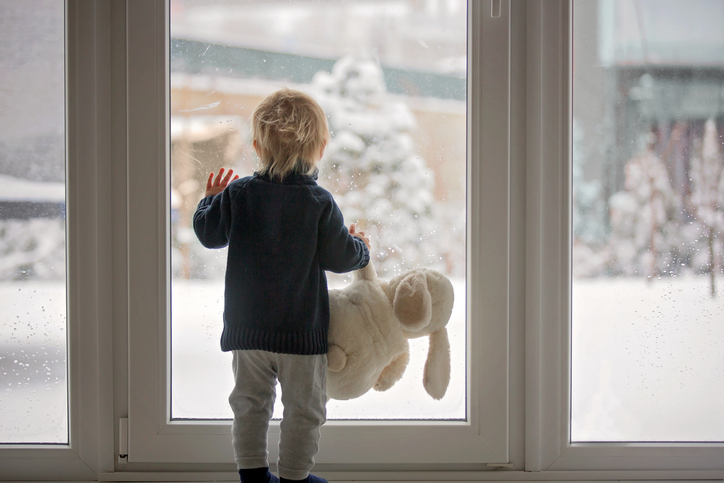As we head towards January—traditionally the coldest month in Louisiana—there are steps you can take ahead of time to make sure you’re prepared to deal with ice and snow in your home and on the road.
Understand Winter Storm Terminology
The Louisiana Governor’s Office of Homeland Security and Emergency Preparedness offers a guide to winter weather terminology, and some tips on what to do if someone experiences hypothermia.
Riding Out an Ice Storm at Home
Make sure you have supplies on hand before a winter storm. You’ll need plenty of water (at least a gallon for every person), dry snacks, canned food and a can opener, flashlights and batteries, a battery-operated radio, and enough warm clothes and blankets to keep everyone comfortable if your heating source goes.
Stay indoors, stay hydrated, and avoid alcohol. Alcohol makes it hard to accurately gage body temperature. Not only does it dehydrate you, it makes it easier to get hypothermia, because you “feel” warmer than you are.
You may want to fill your bathtub with water for flushing the toilet and bathing, in case your pipes freeze. But the best plan is to avoid busted pipes. Turning faucets to a constant slow drip should help.
Bring pets and plants inside. If you have livestock or neighborhood chickens, check their water source to ensure it’s not frozen. Many winter-weather related animal deaths are due to dehydration rather than hypothermia.
Layer up if you lose heat. Wear loose fitting layers rather than tight layers. This allows air to insulate between the layers, keeping you warmer. But don’t wear so many layers that you sweat. Damp clothes are the fastest way to get chilly.
Be extra careful with candles, space heaters and fires. Don’t leave candles, space-heaters or fires unattended. Don’t sleep with fires or candles burning or space-heaters on. Make sure there is nothing flammable, such as fabric, near these items.
Walking in Winter Conditions
It’s much easier to slip than you think. It’s best to avoid going outdoors, but if you must, sprinkle rock-salt on steps and sidewalk to melt the ice. You can also make de-icer from a gallon of water, a few drops of dish soap, and about two ounces of rubbing alcohol.
Make sure your shoes have good tread. YakTrax and similar shoe attachments are worth the investment, if you regularly walk on icy surfaces.
Driving in Ice and Snow
The best tip we can offer about driving on icy roads is, don’t. Just avoid it. Even if you moved from somewhere with regular deep freezes and know what you’re doing, a lot of Louisiana drivers are inexperienced with winter weather. You could easily be involved in an accident caused by another driver.
Make sure to remove enough ice and snow from your vehicle windows to see properly. You can use an ice scraper or pour hot water over your windshield. Your car’s defrost alone will not melt a sheet of ice in a timely manner.
- Avoid steep hills. If you can go a different way, do
- Buckle up and slow down. Double your usual follow distance.
- Accelerate slowly.
- Don’t brake suddenly or quickly. This may cause your wheels to lock.
- If you skid, turn your wheel gently in the direction that the rear of your car is sliding.
- Make sure you have a charged cell phone, water, snacks and blankets or a warm coat in your car.
Do You Have the Insurance You Need to Weather a Winter Storm?
You may want to upgrade to comprehensive auto insurance, if you only have liability. And if you don’t have enough homeowner’s insurance to cover busted pipes or other weather-related disasters, the time to figure this out is now—not after you’ve filed a claim.
Talk to a local agent about your winter insurance needs.

